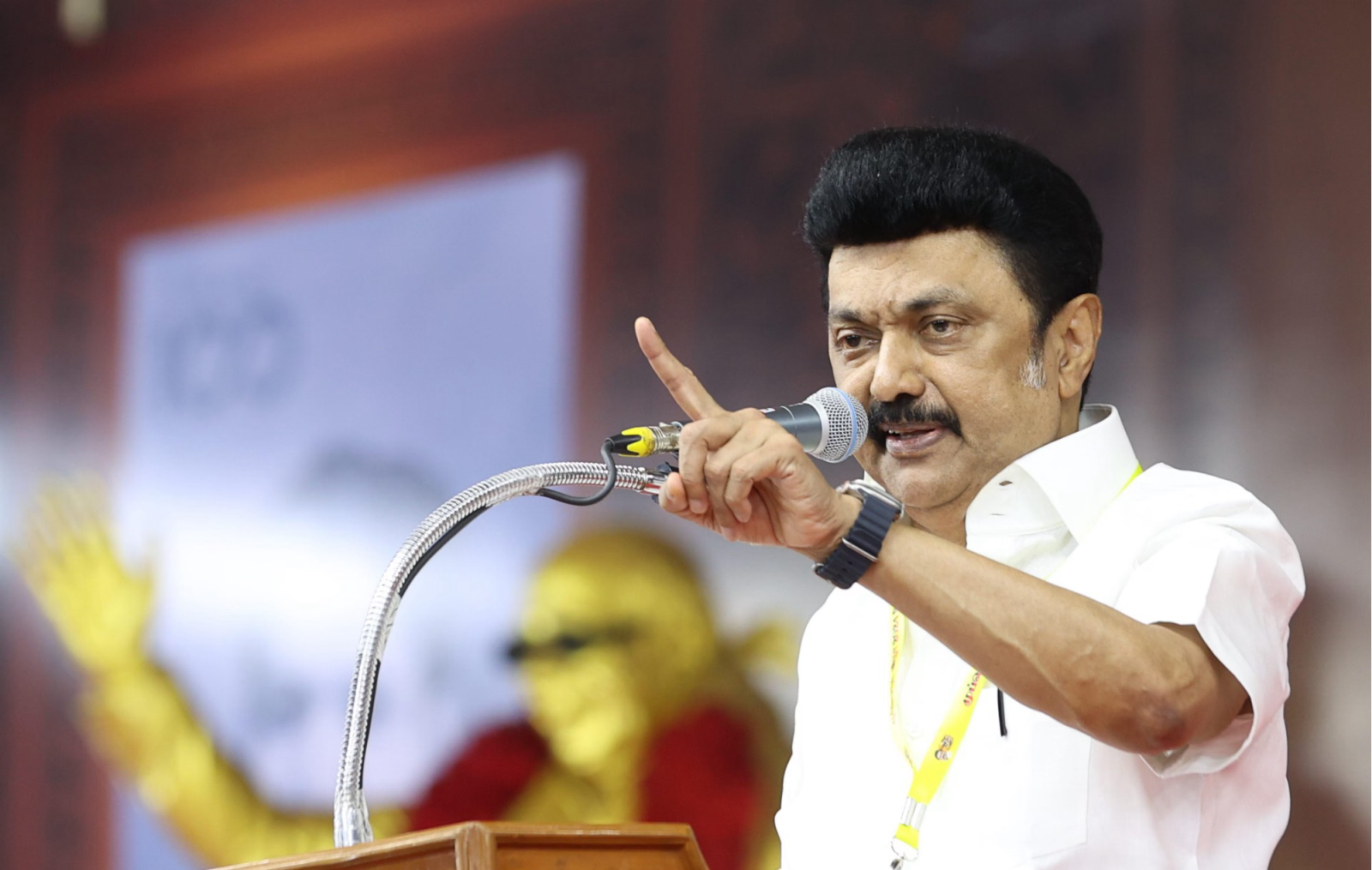Tamil Nadu Chief Minister M K Stalin on Tuesday criticised the BJP-led central government, accusing it of imposing Hindi on the people of southern states while failing to establish institutions for teaching Tamil and other South Indian languages in northern states. Stalin raised the issue in a letter to party workers as part of his ongoing campaign against the “imposition of Hindi.”
In his letter, Stalin questioned why the Union government had not made efforts to set up institutions to teach Tamil or other regional languages in North India, similar to the Dakshina Bharat Hindi Prachar Sabha, which aims to promote Hindi in southern states. He emphasised that technological advancements, including tools like Google Translate, ChatGPT, and artificial intelligence, had made language barriers less of an issue, and students would benefit more from focusing on technological skills rather than learning a new language.
“Imposing a language will only add a burden to students, who would be better served learning necessary technology,” Stalin wrote. He also referenced Mahatma Gandhi’s vision of national unity, wherein both southern and northern Indians would learn each other’s languages. Gandhi’s ideals led to the establishment of the Dakshina Bharat Hindi Prachar Sabha in 1918, which Stalin highlighted as a tool to foster Hindi learning in the south. “Gandhi himself participated in programs at the Sabha’s headquarters in Chennai, which now operates across southern states with over 6,000 centers,” Stalin pointed out.
However, Stalin raised a pointed question about whether an organisation like “Uttar Bharat Tamil Prachar Sabha” or “Dravida Basha Sabha” had been set up in the north to promote southern languages. He further criticised the BJP-led Union government, without naming it directly, for allegedly disregarding Tamil culture and language. Stalin referenced the controversy over the installation of a statue of the saint poet Thiruvalluvar along the River Ganga, claiming it was discarded on a garbage heap by those who had promised to honor the poet.
“Those who follow the path of Godse will never fulfill Gandhi’s objectives,” Stalin asserted, reinforcing his criticism of the central government. He added that even during the colonial era, Mahatma Gandhi played a pivotal role in renaming the Tamil Nadu Congress, emphasising the importance of Tamil identity.
The Chief Minister also raised concerns about the Union government’s decision to name trains operating in Tamil Nadu using Hindi-Sanskrit names, suggesting it was part of a larger plan to undermine Tamil and other regional languages. “It is the Dravidian movement that has the strength to openly oppose such efforts,” Stalin said.
The Dakshina Bharat Hindi Prachar Sabha, which was declared an institution of national importance by Parliament in 1964, was founded by Mahatma Gandhi to promote Hindi in southern India. Stalin’s remarks on the Sabha’s historical background and current operations underscore his belief that language promotion should go both ways encouraging the teaching of Tamil and other South Indian languages in the north, just as Hindi is promoted in the south.
The controversy surrounding the imposition of Hindi has long been a point of contention between the Union government and Tamil Nadu, with Stalin’s remarks further escalating the debate over linguistic diversity and national identity. As the debate continues, the DMK’s stance remains firm against any policy seen as undermining the cultural and linguistic rights of southern India.
-With inputs from PTI
